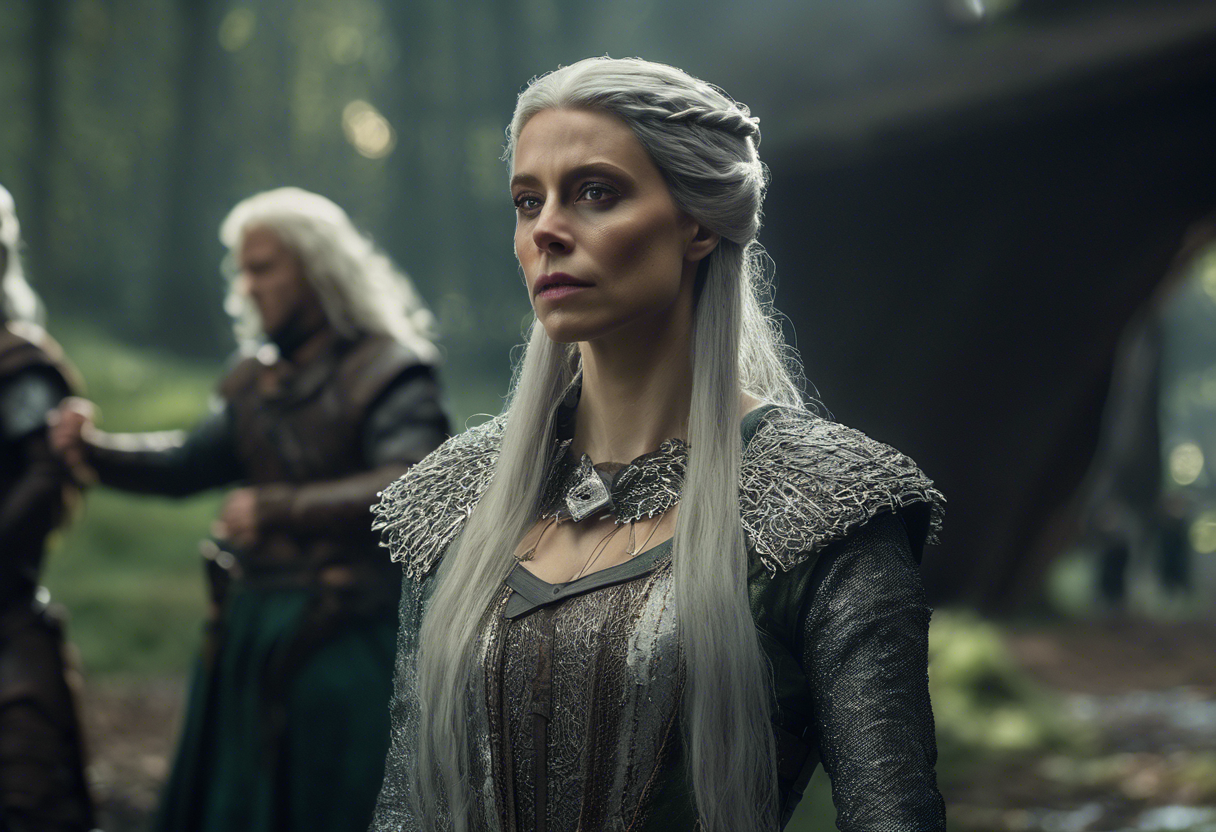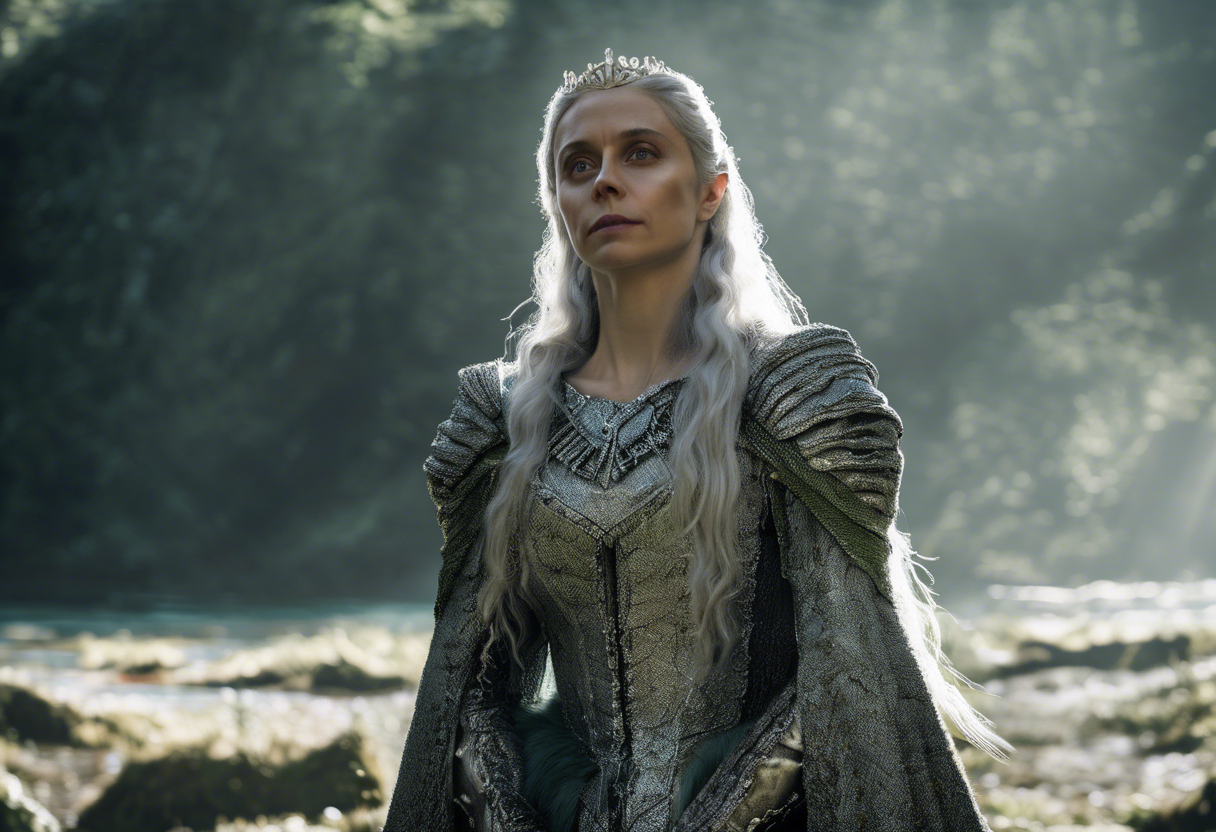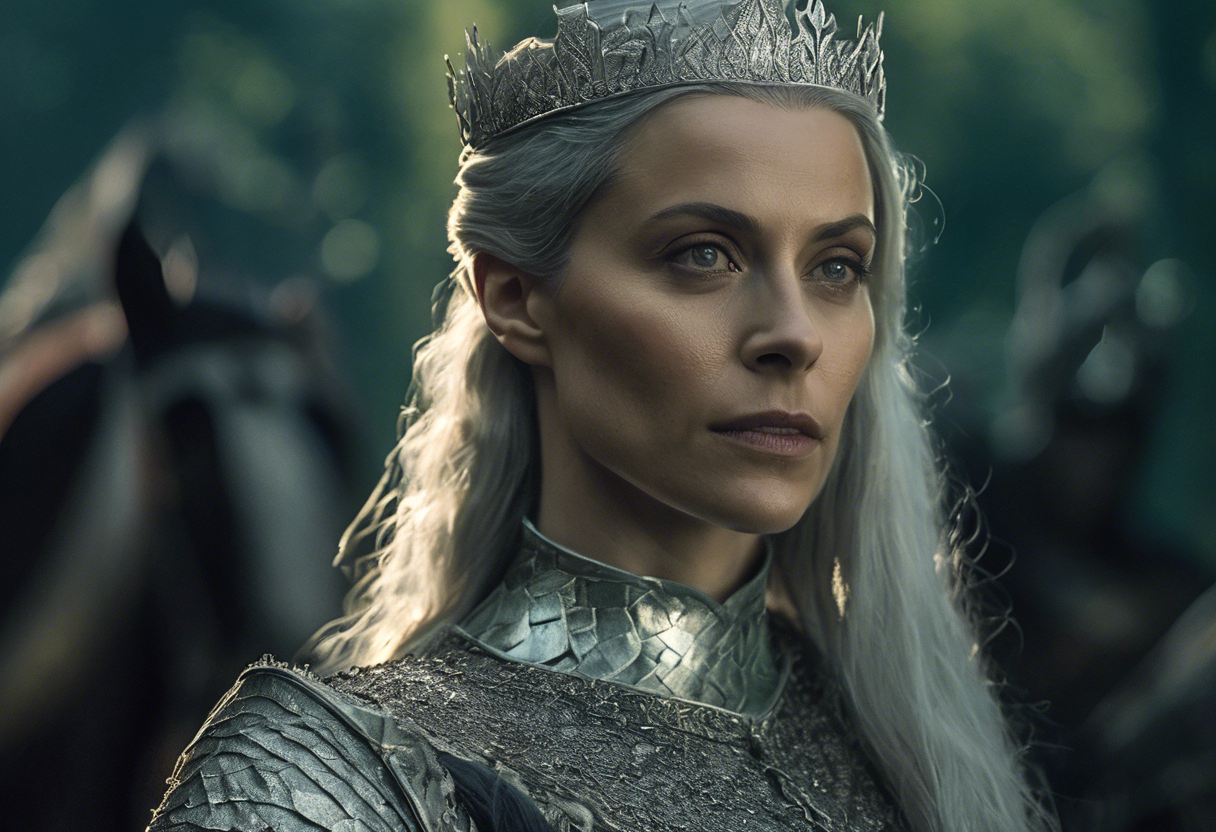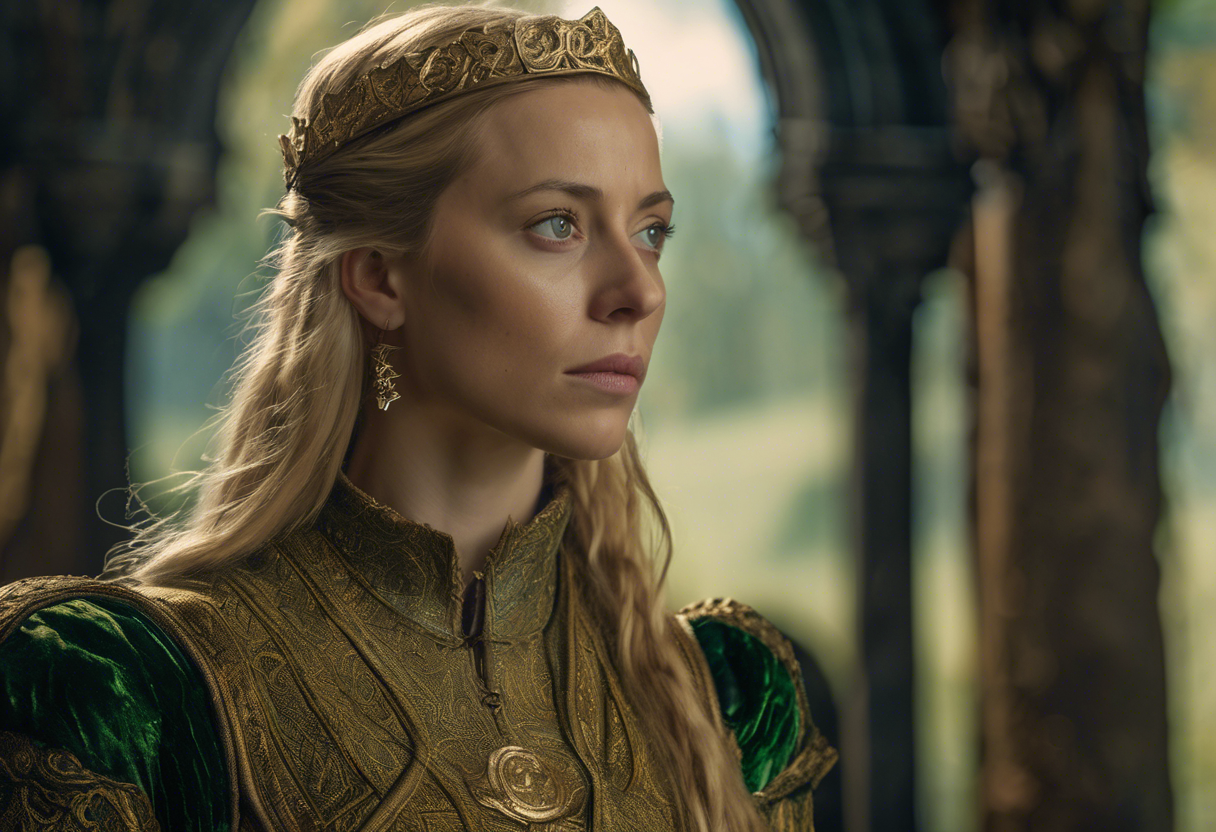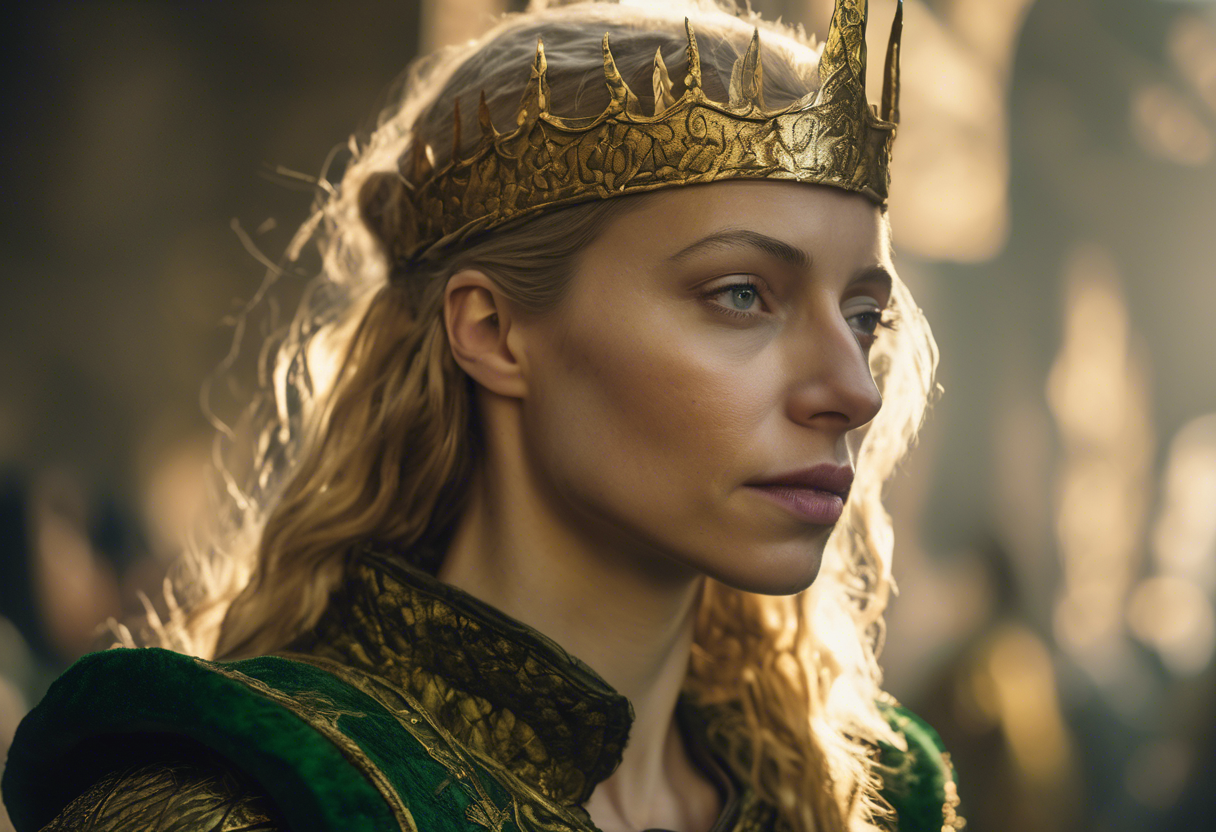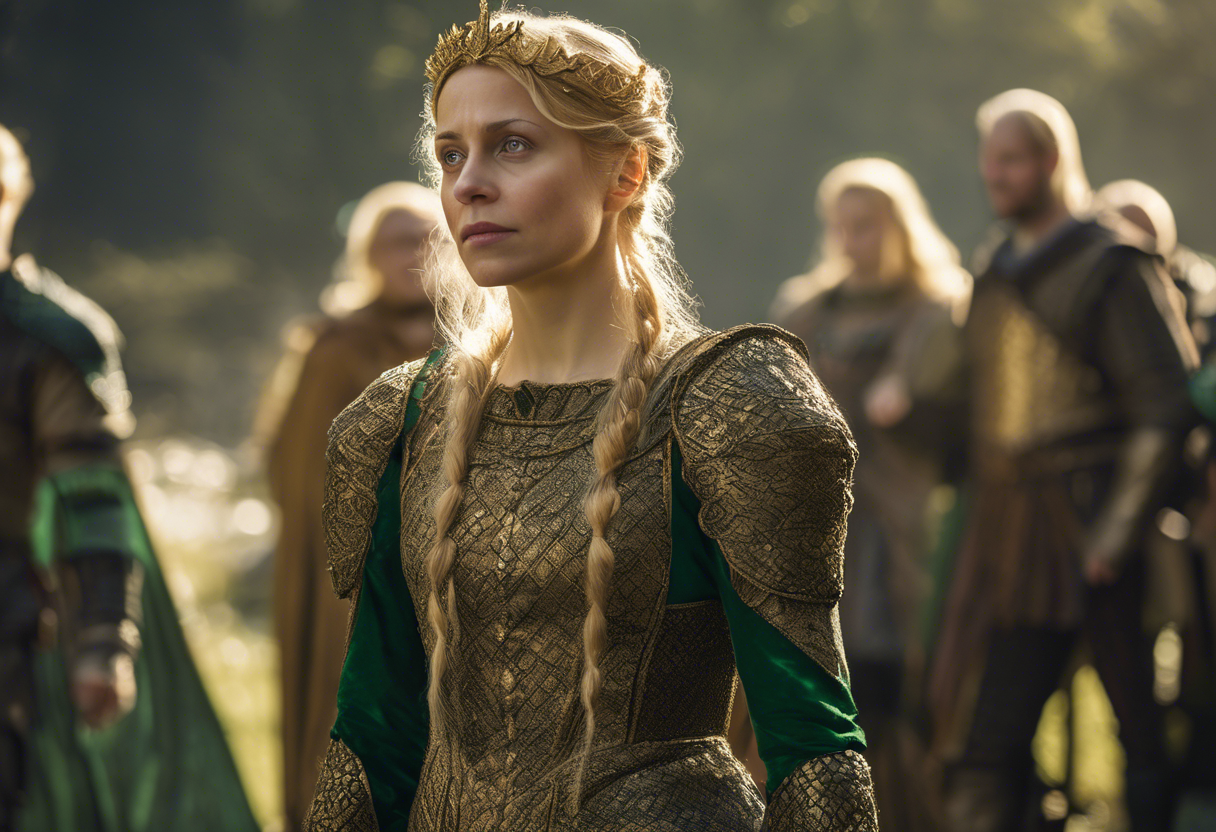Contents
Queen Calanthe from Netflix’s The Witcher: A Comprehensive Analysis
Introduction
Queen Calanthe Fiona Riannon of Cintra, a pivotal character in the Netflix series The Witcher, is a complex and multifaceted figure rooted in the literary works of Andrzej Sapkowski. Portrayed by Jodhi May in the first two seasons of the show, Queen Calanthe is a warrior queen, a just ruler, and a fiercely loyal protector of her kingdom and people. Her character embodies a rich blend of strength, wisdom, and emotional depth, making her a compelling and relatable figure within the narrative.
Originating from Sapkowski’s short stories and novels, Queen Calanthe’s backstory is deeply intertwined with the history of Cintra and the broader world of The Witcher. She is known for her bravery, having won her first major battle at the age of 15, and her unwavering dedication to her kingdom and family [2][4].
Role in the Series
Queen Calanthe plays a crucial role in the narrative of The Witcher, particularly in the early seasons. She is the ruler of the Kingdom of Cintra and the grandmother of Princess Cirilla (Ciri), who is central to the plot. Calanthe’s storyline is marked by her efforts to protect Ciri from various threats, including the Nilfgaardian Empire and other forces seeking to exploit Ciri’s unique magical abilities.
One of the key decisions made by Queen Calanthe is her refusal to give Ciri to Geralt of Rivia, despite the Law of Surprise that binds them. This decision, though motivated by a desire to protect Ciri, ultimately contributes to the downfall of Cintra. As Nilfgaard invades, Calanthe’s leadership and bravery are evident in her final acts, where she chooses to kill herself rather than surrender or use poison, ensuring that her subjects do not suffer a prolonged and painful death [2][4].
Calanthe’s relationships with other characters are also significant. Her marriage to King Eist Tuirseach of Skellige is a highlight of her personal life, showcasing a deep and enduring love that respects her autonomy and power. Eist’s nonchalant attitude towards royal duties contrasts with Calanthe’s fierce dedication, yet their love remains strong until their deaths on the same day [2].
Character Analysis
Queen Calanthe is a character of remarkable depth and complexity. Her personality is a blend of ferocity and compassion, making her a formidable warrior and a just ruler. Despite her tough exterior, she is deeply emotional and fiercely loyal to her subjects and family. This loyalty often leads her to make difficult decisions, such as sacrificing her own happiness for the good of the kingdom [2].
Calanthe’s motivations are rooted in her duty to protect Cintra and its people. She is a trailblazer of modernity and feminism in the fantasy series, demonstrating that a woman can be both powerful and compassionate without compromising her integrity. Her human mistakes and vulnerabilities make her relatable, as audiences can empathize with her struggles and understand the reasoning behind her actions [2].
One of Calanthe’s greatest strengths is her unwavering commitment to her people. She is willing to give up anything that is not a necessity to her or her family if it benefits the citizens of Cintra. This selflessness is evident in her final act, where she chooses a quick death over a prolonged and painful one, ensuring her subjects are spared the worst of the Nilfgaardian invasion [2].
However, Calanthe also has her flaws. Her refusal to give Ciri to Geralt, though understandable, is a decision that has far-reaching and tragic consequences. This highlights the complexity of her character, showing that even well-intentioned actions can lead to devastating outcomes [2][4].
Themes and Symbolism
Queen Calanthe embodies several key themes in The Witcher series. She represents the theme of sacrifice and duty, as her actions are consistently driven by her commitment to her kingdom and people. Her character also explores the theme of feminism, showing a powerful woman who maintains her autonomy and power in a patriarchal society [2].
The symbolic element of Calanthe’s character is significant as well. She is often referred to as "The Lioness of Cintra," symbolizing her bravery and ferocity. Her love story with Eist Tuirseach symbolizes enduring love and respect, contrasting with the more common power struggles seen in other royal relationships in the series [2].
Calanthe’s death also carries symbolic weight, as it represents the fall of Cintra and the beginning of a new era marked by war and upheaval. Her choice to die rather than surrender symbolizes the dignity and honor that she holds dear, even in the face of overwhelming odds [2].
Cultural Impact
Queen Calanthe has had a significant cultural impact since her introduction in the Netflix series. Fans have praised Jodhi May’s portrayal, highlighting her ability to bring depth and nuance to the character. The character’s blend of strength and vulnerability has resonated with audiences, making her a favorite among fans of the series [3].
In terms of adaptations, Queen Calanthe’s character has been well-received in both the Netflix series and the original literary works. Her portrayal in the series has been praised for its fidelity to the source material while also adding new layers to her character. This has contributed to her influence on popular culture, as she stands as a strong example of a female character in a fantasy series who is both powerful and relatable [2][3].
Critical Reception
Critics and audiences have generally praised Queen Calanthe’s character in the Netflix series. Her complex personality and the depth of her storyline have been highlighted as strengths of the show. Jodhi May’s performance has been particularly praised for bringing Calanthe to life in a way that is both authentic and compelling [3].
However, some critics have noted that Calanthe’s decisions, particularly her refusal to give Ciri to Geralt, could have been explored more deeply to provide additional context. Despite this, her character remains one of the most well-received aspects of the series, with many praising her strength, wisdom, and emotional depth [2][4].
Legacy
Queen Calanthe’s enduring appeal lies in her multifaceted character and the significant role she plays in the narrative of The Witcher. She remains a relevant figure in contemporary discussions about strong female characters in fantasy and the complexities of leadership and duty.
Her legacy extends beyond the series itself, influencing other works and character archetypes. As a trailblazer of modernity and feminism, Calanthe sets a high standard for female characters in fantasy, showing that strength and compassion are not mutually exclusive. Her story continues to inspire audiences and writers alike, ensuring that her impact will be felt for years to come [2].
References
- https://www.imdb.com/title/tt5180504/characters/nm0562003
- https://thepathwitcher.blog/2021/03/01/reexamining-calanthe-the-lioness-of-cintra/
- https://www.looper.com/874346/why-queen-calanthe-from-netflixs-the-witcher-looks-so-familiar/
- https://en.wikipedia.org/wiki/The_Witcher_(TV_series)
- https://en.wikipedia.org/wiki/The_Witcher

